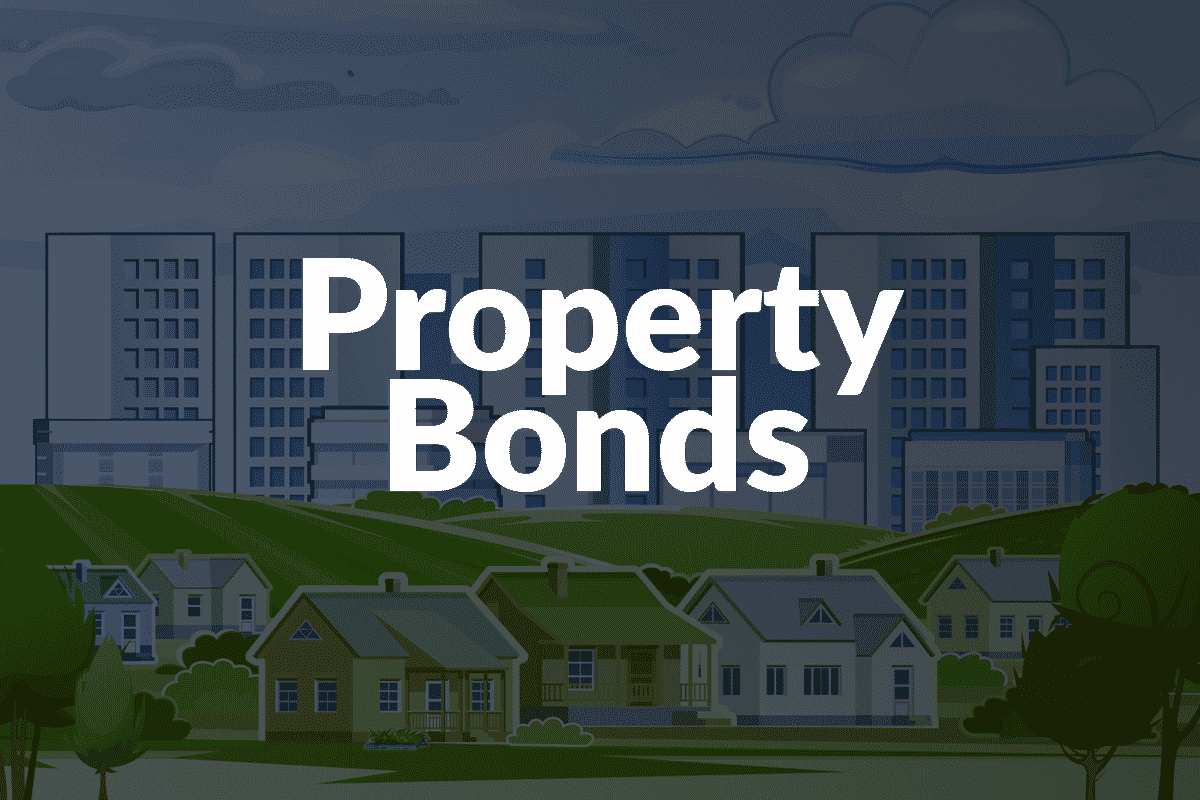Property Bonds - What Property Bonds are and How They Work

-
by Property Investments UK
The Property Investments UK editorial team have been researching and writing about the UK's property market for more than a decade.
If you’re an investor looking to invest in property, or if you’re a property developer looking for finance for a project, you might be considering property bonds. Here we look at what property bonds are and how they work.
What Exactly is a Property Bond?
A property bond (also known as a property investment bond) is a secured loan between an investor and a property development or investment company. Essentially, it is a contract between a lender and a borrower. The lender lends an agreed amount of money over an agreed period for a financial return.
Property bonds work on similar principles to corporate bonds or loan notes, where companies raise funds to finance their activities. With property bonds, those activities are property projects, most frequently, property developments.
Property bonds can also be considered to be both an alternative investment product and an alternative finance product.

Access our selection of exclusive, high-yielding, off-market property deals and a personal consultant to guide you through your options.
How They Work
Every individual property bond is different. Each property bond will have a term, interest rate, conditions and risk-return profile.
Investors can invest various amounts, from as little as £1,000 to several hundreds of thousands of pounds. The limits of the investment will depend on the bond.
Bonds can be issued for any period. But there is usually a minimum term of one year and a maximum of five years.
The rate of interest or coupon on a property bond is agreed upon at the outset and is fixed. Interest may be paid monthly, quarterly or annually. Capital will be repaid on maturity. The actual interest rate will depend on the relevant individual project and may be related to its riskiness.
Property bonds may involve investing in residential or commercial buildings or land. They may involve new build developments, property developments, refurbishments, renovations and conversions.
A property bond is technically a secured loan. The borrower will pledge an asset, usually a property, as security for the loan. A first charge (sometimes a second) will then be placed in favour of the lender to officiate that security. In many ways, a property bond is a form of a private mortgage.
After the charge has been placed and the terms and conditions of the property bond are agreed upon, a contract or loan note is issued. This states what the funds may be used for, the interest rate, additional costs, when the interest and capital are to be repaid, and what security is being provided.
An investment into a property bond may be made into a Special Purpose Vehicle created specifically for that project.
Sometimes, property bonds will be supervised by an independent security trustee. The trustee will be impartial but act in the interests of the bondholders. They will also take charge of the assets which are pledged as security.

The Advantages
Property bonds can offer several advantages for investors:
- They offer a fixed rate of interest over a defined timescale.
- They can offer a high rate of interest. Some bonds have been known to have an interest rate of 15% pa, for example.
- They are asset-backed investments secured via a legal charge on a property.
- They tend to be more predictable and less volatile than other investments, such as stocks and shares.
- They are a convenient, simple way of investing in property without the need to buy or own it or do any of the hands-on work that property investment typically involves. Therefore they are a way of benefitting from the high returns that property development, renovation, refurbishment and construction projects can offer without the investor having to be involved with the day-to-day work.
-
There may be tax advantages to those investing in property bonds. It may be possible to invest in them via an Innovative Finance ISA (IFISA), Self-Invested Personal Pension (SIPP) or Small Self Administered Scheme (SSAS).
There may also be Capital Gains Tax (CGT) advantages compared to buying and owning property.
- Typically, property bonds do not include fees for their investors.
Property bonds offer several advantages for borrowers too. They allow them to borrow more of the investment needed for a project than a commercial bank would be prepared to lend on more favourable terms. A commercial bank might only be willing to lend up to 50% of the amount needed for a property project. Much more than that can be raised using a bond.
Property bonds allow developers to borrow money to fund a property project that commercial banks would not be prepared to lend on. These could be riskier projects with a higher risk of failure but a higher upside potential.
The Risks
Investing in property bonds involves some risks. These will vary according to the individual bond.
Property bonds involve a risk that you will lose some or all of your investment. As the often-heard disclaimer goes, your capital is at risk. Your returns are not guaranteed.
While it is true that if the borrower defaults or even becomes insolvent, the lender will have a legal charge over the security that has been pledged, there is always a risk that this will prove insufficient to repay the investment.
With property bonds, the individual investor must assess the relevant project together with the riskiness of the investment. They should look at the bond issuer's experience and the viability of their project. They should consider whether the security provided adequately secures their investment for themselves. They should consider the asset-to-liability ratio for that particular bond.
As is normal with most bonds, your capital will be locked in. As is typical with most types of bonds, you can only remove your capital once the term is complete (the bond has matured). Property bonds are illiquid investments.
It is important to note here that property bonds are neither regulated by the Financial Conduct Authority nor covered by the Financial Services Compensation Scheme.
Interest Rates
Interest rates offered by property bonds are not directly linked to the base rate. Interest rates are based on a meeting point between what borrowers are willing to pay and what lenders are willing to lend at.
Property bonds currently on the market offer interest rates between 4% and 15%.
The interest rate on a particular property bond will generally relate to its term and how risky the investment is considered to be. Shorter-term bonds tend to offer lower interest rates. Long-term bonds tend to have higher interest rates. High interest can mean that the project being financed is considered relatively risky.
Investors in property bonds should carefully consider the project in question and ponder what the interest rate says about it. They should also know how much (or little) risk they are comfortable with.
Who are Property Bonds Suitable For?
Property bonds are a financial vehicle for companies who want to raise finance for property projects and investors interested in investing in property projects. They tend to be issued by property developers, construction companies and builders.
They are not suitable for all investors and are only available to certain kinds of investors. That is the kind of investor who understands how this type of bond works and accepts the risks they involve.
Property bonds are not considered to be savings or ordinary retail investments. Those who offer property bonds are only permitted to accept investments from high-net-worth individuals or certified (or self-certified) sophisticated investors.
High net worth individuals or HNWIs are either those whose net annual income is over £100,000 or those whose net assets are over £250,000. Sophisticated investors are those who hold a directorship with a company with a turnover exceeding £1m, have previously made certain investments, or whose professional experience in finance confirms that they understand the risks.
How to Invest
Property bonds can be bought directly from a property development or investment company. However, they are usually purchased through a lender or intermediary: a specialist.
Investors should always take their own independent financial and tax advice before investing or considering an investment in, property bonds.